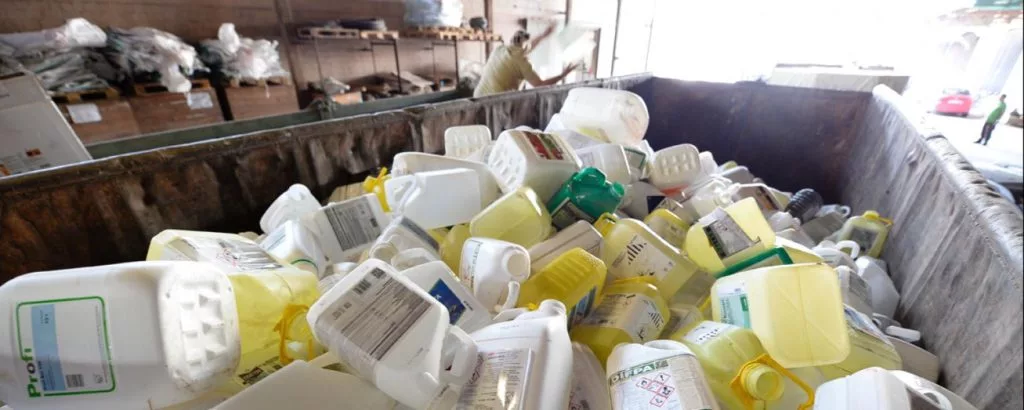What is Ammonium Nitrate?
Ammonium nitrate (NH₄NO₃) is a white, crystalline, odorless chemical compound, usually taking the form of small pellets. A salt of ammonia and nitric acid, this compound is highly soluble in water. It is also incredibly hazardous as it is also used in the manufacturing of commercial explosives.
Ammonium nitrate is commonly used as a fertilizer by farmers worldwide due to its affordability and easy availability. It has two key components: NH4 (ammonium) and NO3 (nitrate). When added to soil, plants can directly access nitrogen from the nitrate form of the compound.
The fraction of ammonium is gradually converted into nitrate by soil bacteria, and the two nitrates are absorbed by the roots of plants. This process, known as nitrification, increases soil fertility and provides an immediate source of plant nutrition, leading to increased plant growth and crop yield.
Dangers of Ammonium Nitrate
Ammonium nitrate is used not only in agriculture but also in commercial explosives production. Its explosive nature is due to the presence of both ammonium ion, which acts as a fuel, and nitrate, a strong oxygen-producing agent, in the same molecule. When exposed to fire, ammonium nitrate triggers huge explosions, often sustained for a long time. When used in controlled circumstances, the explosions are useful for demolition work and mining industries. However, if handled irresponsibly, ammonium nitrate can prove to be a dangerous substance.
In August 2020, a massive explosion in Beirut caused 218 fatalities and injured thousands more. The blast was caused by 2,700 tonnes of ammonium nitrate stored near the city’s cargo port. This was not the first time a major explosion causing mass casualties was linked to ammonium nitrate.
In 2015, in Tianjin, China, an explosion resulted in 173 fatalities when ammonium nitrate reacted with flammable chemicals.
These two cases highlight the potential dangers of improperly storing and disposing of ammonium nitrate, which could cause collateral damage to life and property.
Terrorists and other anti-social elements can misuse ammonium nitrate to make improvised explosive devices (IEDs) to cause mass casualties. For example, ammonium nitrate was an important ingredient in the explosives used in the 2011 Delhi bombings. As the chemical is prone to be misused, many countries are phasing out its use in consumer applications. Due to its potential for misuse as an explosive in terrorism or accidental detonation, several countries have banned the sale of ammonium nitrate as a fertiliser. Many other countries maintain strict vigil on its illegal procurement.
Health Hazards of Ammonium Nitrate
Exposure to Ammonium Nitrate poses multiple health hazards that include irritation to the skin, eyes, nose, throat and lungs. Overexposure can cause nausea, headaches, trouble breathing, dizziness, collapse and even death.
It can even lead to a blue colour to the skin and lips, which is also known as methemoglobinemia.
Safe Handling of Ammonium Nitrate
Adequate precautions must be taken while dealing with ammonium nitrate as it can form an incredibly volatile compound capable of causing massive explosions when exposed to flammable substances.
Remember to strictly follow the rules and regulations in place if you are storing ammonium nitrate. Bring about awareness among your employees about the hazards of ammonium nitrate. In the event of a spill, evacuate all the people in the vicinity and secure the area.
Safe and secure handling of ammonium nitrate requires a host of measures, such as providing adequate staff training, using Personal Protective Equipment (PPE), implementing emergency protocols to deal with accidents and segregating storage areas.
Provide your employees with hazard information and training in Ammonium Nitrate disposal methods if you require them to handle the spills. Due to its hazardous nature, ammonium nitrate spills and disposals must be handled by professionals. A spill can pose an immediate threat to the safety of your workers and also interfere with production. When chemicals are involved, the most sensible option is to seek professional help. They will also be able to dispose of the hazardous waste safely and responsibly.
How Can Ideal Response help?
Our highly trained team has expertise in Ammonium Nitrate handling and dealing with its hazards. They can efficiently deal with ammonium nitrate spills safely and securely. Our state-of-the-art technology enables us to get the job done in an environmentally responsible way. Whatever the spill or cleanup requires, we can help. You can reach us around the clock, 365 days a year. Our team will arrive at the spot within two hours, depending on the location. Don’t take any risks when working with chemicals. Rely on the expertise of professionals. Contact us today for a free quote



